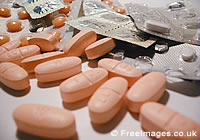Commission launches consultations on improving medicine for children
A new consultation paper which aims to improve the availability of medicines suitable for children has been launched on the Internet by the European Commission. Although children represent 20 per cent of the European Union's population, over half of the medicines used to treat children in the EU have never been specifically tested for them. The new consultation paper suggests guidelines for ways of remedying the shortage of child-specific medicines. Erkki Liikanen, the European Commissioner for Enterprise and Information Society, said: 'To get the best and safest treatments for children across Europe, society must strike the right balance between incentives and regulatory obligations. We need to move forward on this important matter to ensure that both existing and new medicines are adapted to paediatric needs in the most resource-efficient manner for society as a whole.' Health and Consumer Protection Commissioner David Byrne added: 'Our children deserve as much attention [...] as adults when pharmaceutical companies put medicine on the market. I encourage industry to support our initiative. Today is a first step to remedy the unsatisfactory situation on paediatric medicines as requested by the Health Council in December 2000.' Pharmaceutical companies are often reluctant to invest in child-specific medicines as the market for them is relatively small. The consultation paper produced by the Commission suggests incentive measures such as longer periods of intellectual property (IP) protection to reward work on innovative measures and a new type of marketing procedure to award IP rights to new paediatric uses of older products. Specific research funding is also suggested to tackle the challenge of obtaining information on older medicines, which pharmaceutical companies have little incentive to adapt to children's' needs. The paper proposes the introduction of mandatory paediatric studies on new medicines, and the creation of an EU expert working party at the European Medicines Evaluation Agency (EMEA) to oversee the development, availability and follow-up of paediatric treatments. It also suggests the establishment of a pan-European network of clinical trial specialists to work on the development and adaptation of medicines for children. The Commission sees encouraging pharmaceutical companies to study, test and adapt new and old medicines to children's' needs as crucial to the success of its proposals. This standpoint reflects discussions currently underway with the Commission's 'G10 Medicines Group,' a high level group on innovation and the provision of medicines set up to examine issues such as stimulating innovation and improving the EU science base, improving the working of the pharmaceuticals market and producing better information for patients. The group's recommendations will be set out in a report presented to the Commission President Romano Prodi in May this year.



